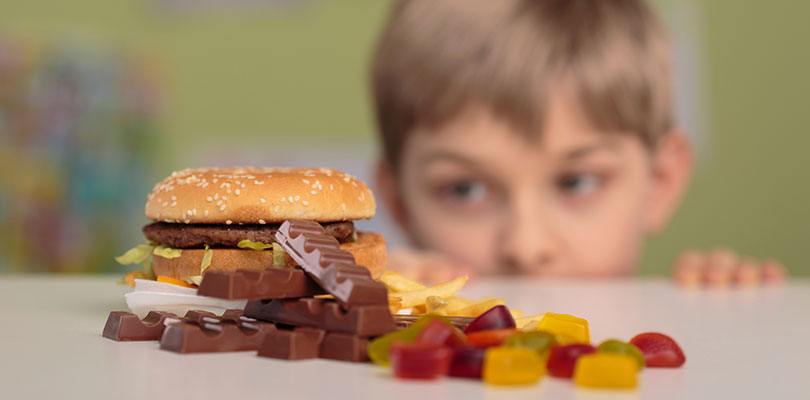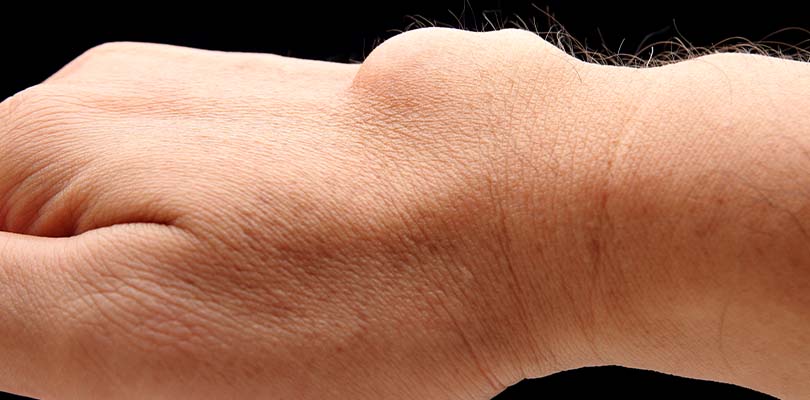Photo Credit: KatarzynaBialasiewicz / iStockPhoto.com
Getting to the Root of Food Cravings and Sweet Temptation
Junk food isn’t healthy by any stretch of the imagination, so why does your body call out for it when you smell fast food in the air, or pass by an ice cream shop? As it turns out, your brain operates on different levels when it comes to food, and what nutritionists deem “healthy” isn’t always what your brain thinks your body needs.
What we consider the “optimal” nutritious diet is really a luxury, and a fairly recent one.
Hundreds of centuries ago, eating habits were quite different, and though availability has changed, your brain is stuck in the past. Couple that fact with the power of childhood habits, and you have a recipe for fat, sugar, and salt cravings.
Blame It on Evolution
Fat, sugar, and calorie-dense are all dirty words when it comes to the modern diet, but at one point in time, they were the difference between life and death for human beings.
Early humans lived as hunters, gatherers and foragers, largely depending on the bounty of the fertile season, and moving around to find food (and to avoid becoming food). When food was scarce and unexpected challenges were commonplace, people had to load up on nourishment whenever and wherever they could — binging on certain ingredients made perfect sense.
Fat and Sugar Were Very Helpful
Obviously, the more calorie-dense the food, the longer the meal would provide life-sustaining energy.
Fat and sugar are both excellent choices when it comes to calorie density and readily available energy: you’ll take in nine calories in every gram of fat (a gram of protein or carbohydrate brings a mere four calories), while a gram of sugar provides quick energy but can also be stored as fat for later use.
Primitive Biology in a Modern World
While the human species has come a long way, there are instincts evolution hasn’t bred out of the population.
Although the availability and convenience of the food supply has changed drastically, the human brain is still hard-wired to take in high-calorie foods for survival, which explains why fat and sugar are so hard to resist. The problem is, the temptation is constant, and it’s important to find ways to deal with it on a daily basis.
The Salt Connection
Health experts have been warning for decades that too much salt in the diet can have terrible health consequences, but like sugar and fat, the human body is designed to enjoy the taste of salt because salt is so important for survival.
Salt is not calorie-dense, nor is it immediately energy-boosting, but it’s one of the biggest culprits behind cravings. Depending on your personal habits and nutrient balance, your taste for salty things could indicate an imbalance in your sodium intake — or even a psychological need.
Is It a Deficiency?
For some people, a lack of sodium can lead to cravings, and even drastic mood swings and dips in mental and physical performance.
In recent years, CBD oil has grown in popularity as it has a whole host of health benefits. Here are eight CBD oil benefits to be aware of.
Those on a very low-sodium diet, very active people, and people with an underlying thyroid or adrenal problem may find they begin to crave salty foods often, which can be a sign that your body is in need of more sodium.
In other cases, a mineral deficiency could be to blame: your salt craving is actually a craving for magnesium, zinc, calcium, or other trace minerals.
Salt Habits Form Early
In modern households, salt is perhaps the most prevalent and popular seasoning. It stands alongside spice racks and graces kitchen tables, and many cooks use salt without even thinking about it.
If you grew up in a salt-heavy household and find you salt dishes before you even taste them, your taste buds might be desensitized to the effect. In turn, you might find salt-free food bland, boring and unfulfilling, leaving you craving a hit of salt.
How Association Factors Into Your Diet
Evolution can account for a lot of your cravings, but so can your upbringing. Sugary treats take center stage at birthday parties, and savoury, fattening feasts marked all sorts of special occasions. In turn, it’s natural to (consciously or subconsciously) associate calorie-dense, indulgent food with happy times or personal rewards, and try to recapture those feelings with tasty snacks. Smells, memories, and other mental cues are powerful, and can led to dependency.
Taste can be innate, but it can also be learned. One major reason for chronic junk food cravings is that so much processed food is introduced in childhood, and these sugar and salt-laden preparations are expertly designed to concentrate flavor and texture in appealing ways. If you develop a certain bent for salty snacks or a specific sugary dish early in life, chances are you’ll continue to crave those tastes into adulthood.
Making the Switch to Healthier Habits
If you have a taste for calorie-dense, unwholesome foods, changing to a healthier diet can be incredibly difficult. It’s a matter of deconstructing your habits, and re-training your brain to enjoy other flavors and sensations. You can’t easily make the switch overnight, but you can do it with a smart approach and a bit of patience.
- Eliminate processed foods. Processed, pre-packaged foods often contain much more fat, sugar, and salt than you think. Cut them out completely for an instant health boost.
- Taste before adding salt. When you’re cooking, save the salt until the dish is done, and then only add a small pinch. Leave the salt shaker off the table, too. Your taste buds will soon adjust to a less salty lifestyle.
- Find your favorite herbs. Herbs and spices are incredible flavor-boosters, and many have some great nutritious properties. They can ease your transition to a lower fat and salt-reduced menu, especially if you get the hang of pairing herbs with their favorite veggies.
- Eat consciously. When you’re eating, focus on eating. Savor every mouthful, taking the time to enjoy the taste and texture. Mindless eating can easily feed unhealthy food habits, so start thinking about everything you put in your body.
Biology is mysterious, and the survival instinct is powerful, but you can improve your willpower with a better understanding of where your cravings come from. After that, you can begin to make smart substitutions that will eventually satisfy you as much as the unhealthy treat, but just as evolution forged your tastes over time, it will take time to re-train your brain.






